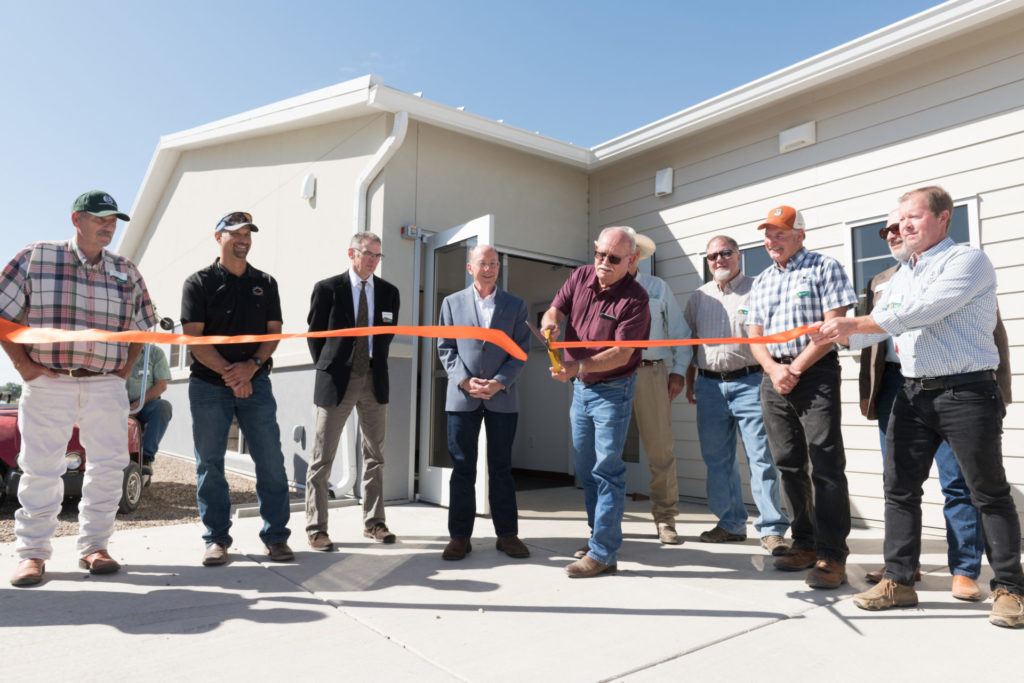
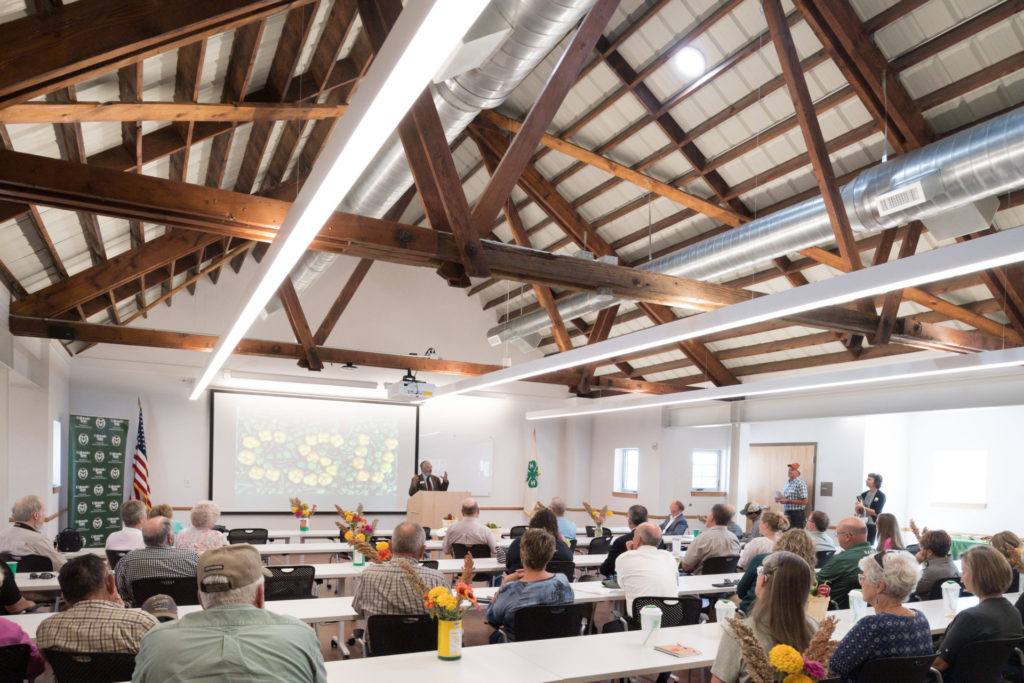
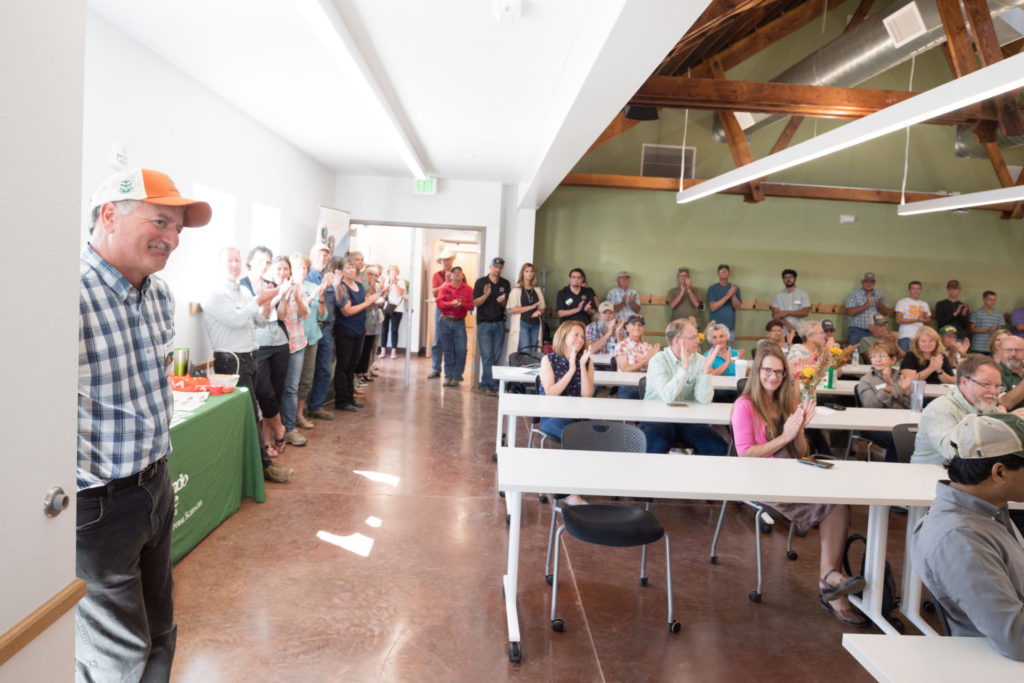
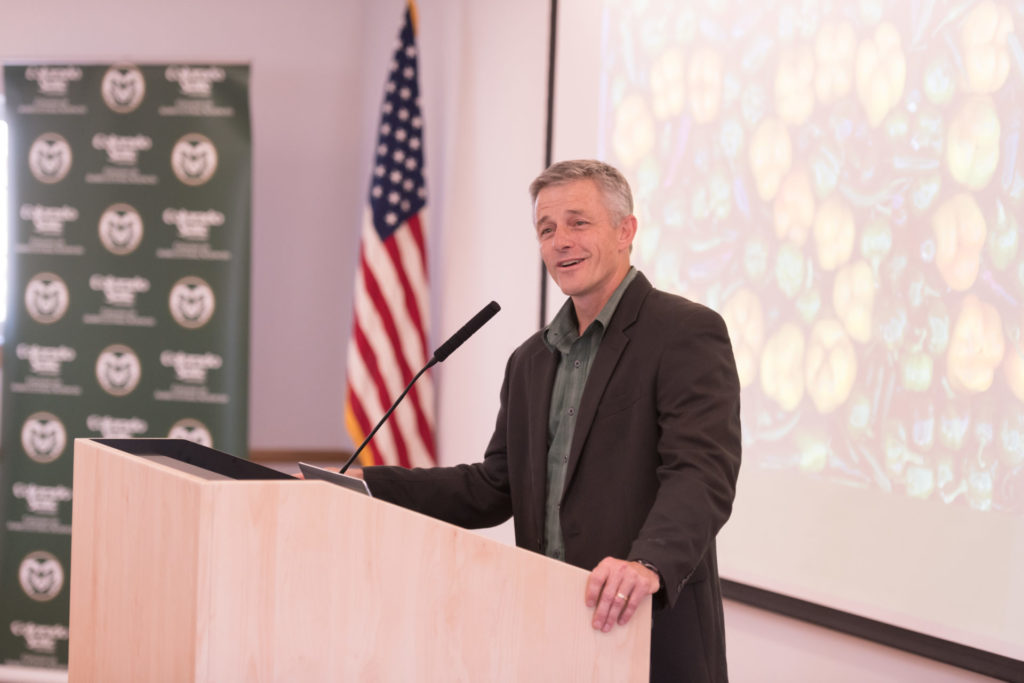
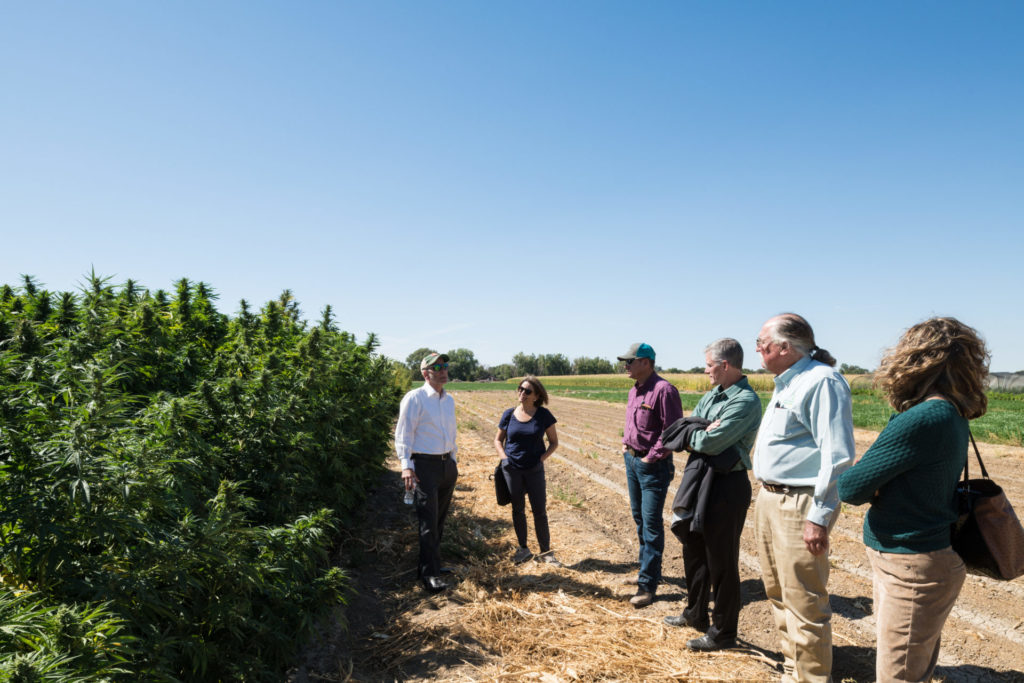
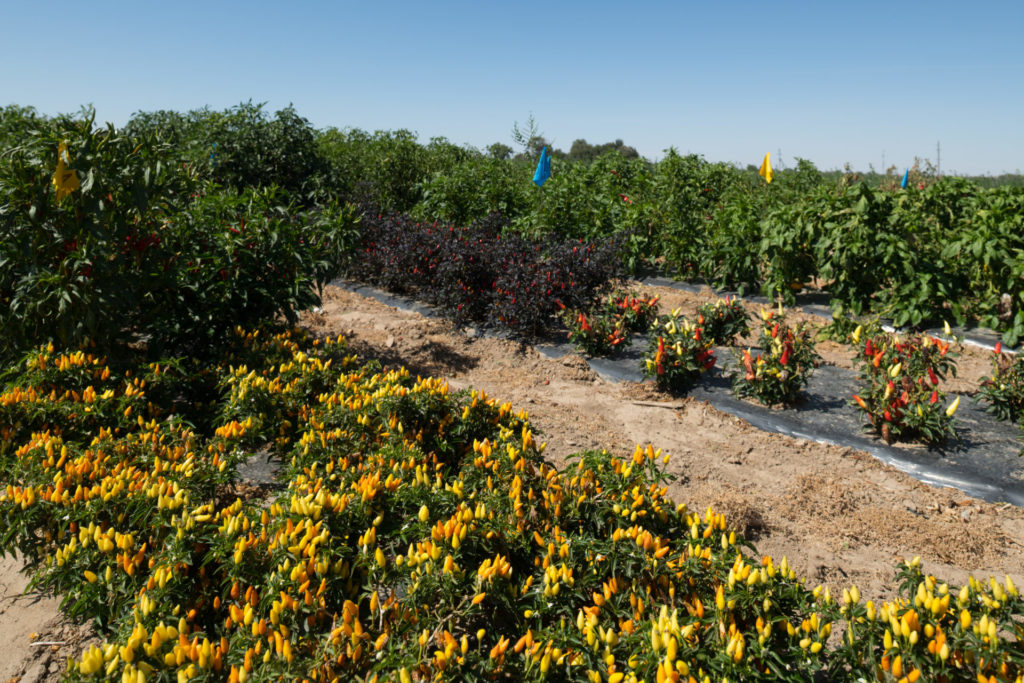
Colorado State University celebrated the opening of its new Arkansas Valley Campus, in Rocky Ford, Sept. 25.
Along with the Western Campus, which opened in August, this marks the second significant facility showcasing CSU’s commitment to its land-grant mission.
“Agriculture is critical to the Colorado economy and the southeastern Colorado region, and Colorado State University is proud to support the Arkansas Valley with research and outreach that helps strengthen crop production as well as water management,” said CSU President Joyce McConnell. “CSU has had a home in Rocky Ford since 1888 — longer than any other location outside of Fort Collins — and we are excited the Arkansas Valley Campus will continue this proud legacy.”
“The Arkansas Valley Research Center allows Experiment Station and Extension staff working together to bring about more education and opportunities for all southeast area communities through creativity and innovation to support research and outreach and engagement,” added Bill Nobles, director of the CSU Extension Peaks and Plains district.
Multidisciplinary approach to research and education
Much like the Western Campus, the Arkansas Valley Campus came to fruition through collaboration across multiple units. The facility officially houses the Arkansas Valley Research Center, the Colorado State University Extension-Southeast Area, the Rocky Ford Veterinary Diagnostic Laboratory, and the Colorado State Office of Engagement. The combination of the units provides a robust approach to research and education.
Nobels was joined by James Pritchett, named interim dean of the CSU College of Agricultural Sciences; CSU Southeast Area Director of Extension Bruce Finkenscher; Rocky Ford Veterinary Diagnostic Lab Director Gene Niles, and Arkansas Valley Research Center Director Mike Bartolo at the event.
“The Arkansas Valley is a vibrant agricultural, economic and cultural center for southeastern Colorado,” said Pritchett. “It’s citizens are hardworking, entrepreneurial and committed to service. With our partners in the Otero County Extension, we will match the sprit of the Arkansas Valley by applying the land grant mission – generating new knowledge, applying it with wisdom, and preparing the leaders of tomorrow.”
“The new construction and subsequent relocation of the Extension office at our site embodies Colorado State University’s land-grant mission and reaffirms CSU’s 130-year commitment to the citizens of the Arkansas Valley,” added Bartolo at the event.
The new facility will house units and programs including:
The Arkansas Valley Research Center (Rocky Ford) AES programs, focused on irrigated crop production with a particular emphasis on specialty crops and optimal water use. Alfalfa, corn, dry beans, small grains, soybeans, sorghum, onions, melons, tomatoes, cucumbers, potatoes and peppers are representative of crops grown under irrigation. The research center was established in 1888 as the Bent Agricultural Experiment Station and is the oldest continuously operated agricultural experiment station, outside of Fort Collins, in Colorado. The AVRC serves the research needs of the irrigated farming area of southeast Colorado known as the Arkansas Valley, extending from Pueblo County on the west to the Kansas border. It also includes irrigated areas associated with the tributaries to the Arkansas River in El Paso, Huerfano and Las Animas counties.
Colorado State University Extension/Southeast Area, a trusted resource for building and strengthening Colorado communities in seven Southeast Colorado counties, and serves as the front door to the university. CSU Extension provides information and education and encourages the application of research-based knowledge in response to local, state, and national issues affecting individuals, youth, families, agricultural enterprises and communities. Southeast Area Extension staff throughout the state are dedicated to serving current and future needs of Coloradans by providing educational information and programs that are designed to meet the unique needs of each of Southeast Colorado’s seven counties. Extension offers a wide variety of programs and educational classes, teaching people how to apply science-based information in their daily lives in order to make informed choices about everything from personal finances and healthy living to community issues.
The Rocky Ford Veterinary Diagnostic Laboratory, which provides a wide variety of testing services locally and handling of samples for all testing available through the CSU Veterinary Diagnostic Laboratory system. This laboratory provides full necropsy capabilities for large and small animals, as well as histopathologic examination of surgical biopsies. The services are offered by a Board Certified Veterinary Toxicologist. Consultation with fellow pathologists at the main laboratory is provided as well for difficult or problematic cases. The RFVDL is also a member of the Food Emergency Response Network, which is organized to ensure inter-agency coordination of potential food contamination emergencies.
Colorado State University’s Office of Engagement, which includes CSU Extension, the Colorado Water Institute, CSU Online, Community and Economic Development and the Regional Engagement Hub Network. The Regional Engagement Hubs are a network and a platform for the CSU System. Embedded in regions in eastern, central and western Colorado, they serve to connect that region to the university and the university to the region. The regional staff tackles workforce and economic development challenges through providing data, facilitating group decision making and strategy, and training and education.